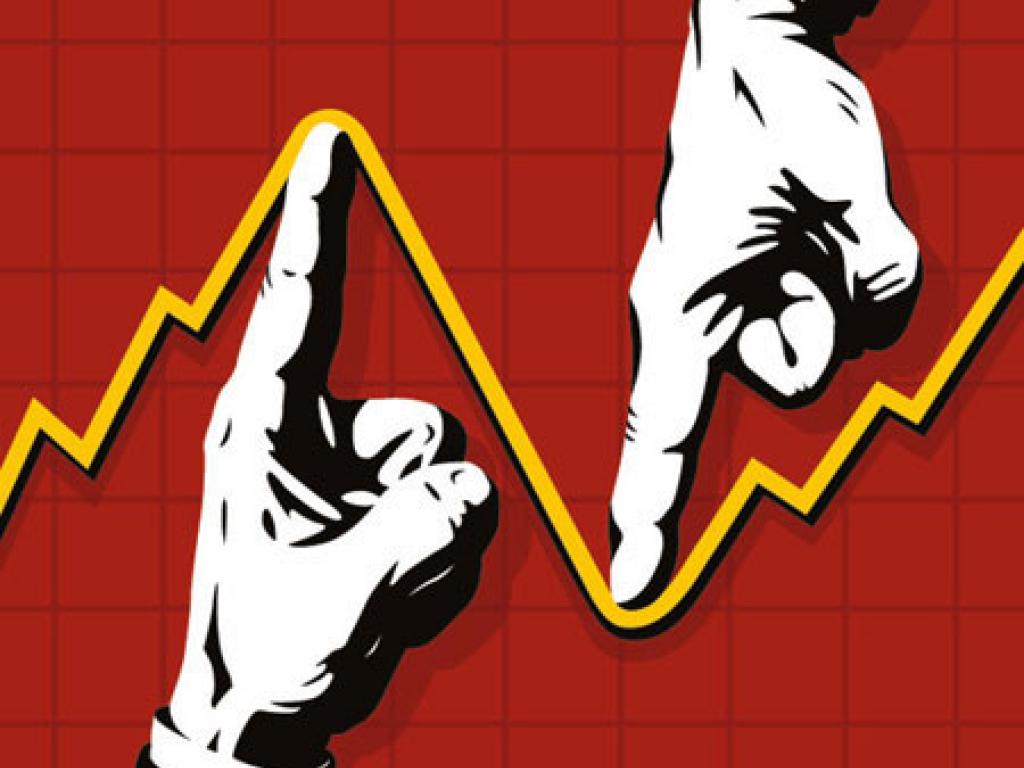
I wanted a perfect ending. Now I’ve learned, the hard way, that some poems don’t rhyme, and some stories don’t have a clear beginning, middle, and end. Life is about not knowing, having to change, taking the moment and making the best of it, without knowing what’s going to happen next. Delicious Ambiguity.”
–Gilda Radner
In “The Hitchhiker’s Guide to the Galaxy,” author Douglas Adams writes that “we demand rigidly defined areas of doubt and uncertainty.” Nowhere has that become more obvious than in the recent action of stock prices.
Traders and investors now face a delicious ambiguity.
After an extended period of limited daily price changes, volatility and uncertainty have returned to our markets.
Yesterday’s 25-handle move up in the S&P 500 Index continued the pattern of uncertain and almost-random daily large price moves.
Continue Reading →

Knowledge has to be improved, challenged, and increased constantly, or it vanishes – Peter Drucker
We couldn’t agree more, especially in the business of stock trading; the more you learn, the more you earn.
As such, much of the knowledge we share on this blog focuses on recapping technical chart patterns of past stock and ETF trades that led to successful, profitable outcomes.
However, equally priceless lessons can be learned by walking through losing trades that did not work as expected.
In this article, we share three insightful, psychological tips (or reminders for experienced traders) from our recent losing swing trade in $SQQQ.
Grab your notebook and continue reading to improve your success as an equities trader…
Continue Reading →

Trading systems are not only good for making money in financial markets but they are also extremely useful for learning. Unfortunately, trading systems often get discarded early on after a couple of poor back-test results.
Sometimes it is better to improve an existing model that needs work than to start afresh with a totally new system. In this article I look at 21 ways you might be able to improve on your existing trading system:
Continue Reading →
This is a post by Mastermind, Bramesh Bhandari. The original post appears here.
If you are a LOSS making trader, answer the below question to yourself honestly.
What is the main Reason for Your Trading Loss? We are running a poll on Twitter Please participate
- Unable to Understand Market Trend as it moves from Sideways to Trending or
- Is it your system or strategy? You are not having the Right Strategy and Losing
- You — By repeating the same mistakes again and again
As per my experience with trading over 12+ years and also talking with 1000’s of traders over a period of time, my understating is
Traders are often their own worst enemies. The simple reason being most of the traders after doing a big loss will turn to charts and try to find their mistake. What I missed in catching this move, should I apply more indicators or should I learn something new to catch big moves etc. Readers can go back to thought process they went once they took a big loss or missed a major rally.
It’s easier to look at charts and imagine what the market might do or find an excuse , compared to turning inward and engaging in self-examination to determine if any changes in your approach to trading are required.
A very simple exercise will make you understand this
Go back to your past traders, highlight the trades where you made maximum losses, analyse all the loss making trades. You will observe over a period of time you have repeated the same mistake again and again. Be It taking an impulsive trade, trying to find top or bottom, not putting SL , taking over-sized position etc.
What would happen if you identified a recurring mistake? Would you do anything differently while trading, as a result? Would you need or use some type of structure or process to assist you in not repeating the same mistake?
The only thing we actually have any control over is our behaviour. The market will do what it will do. If one is truly interested in maximising / improving P&L, then focus on not to repeat your mistakes again. We may not be able to control our emotions, but we can learn to manage them.
Trading Journal is one of the tools which can help you in understanding your mistakes and over a period of time not repeating them.
As per Wikipedia, A stock trader or equity trader or share trader is a person or company involved in trading equity securities. Stock traders may be an agent, hedger, arbitrageur, speculator, stockbroker or investor. A stock investor is an individual or company who puts money to use for the purchase of equity securities, offering potential profitable returns, as interest, income, or appreciation in value (capital gains).
So what kind of a trader are you? Read this post, the original of which appears here on the website of Mastermind, Bramesh Bhandari.
Continue Reading →








